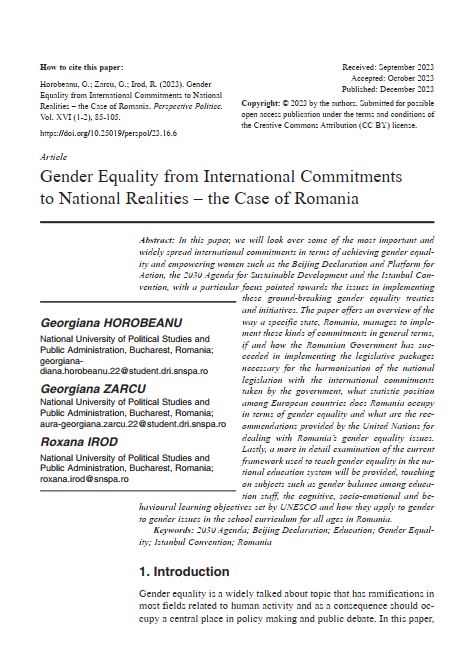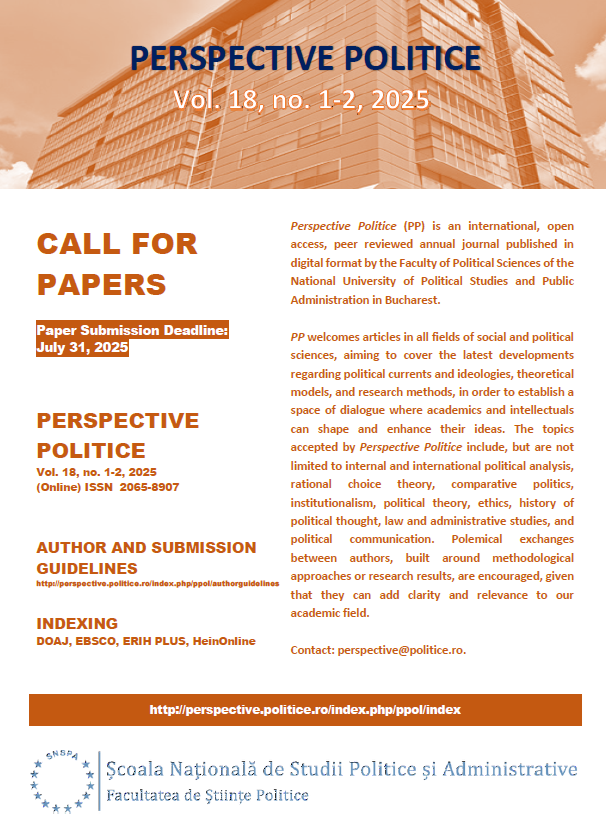Gender Equality from International Commitments to National Realities – the Case of Romania
Abstract
In this paper, we will look over some of the most important and widely spread international commitments in terms of achieving gender equality and empowering women such as the Beijing Declaration and Platform for Action, the 2030 Agenda for Sustainable Development and the Istanbul Convention, with a particular focus pointed towards the issues in implementing these ground-breaking gender equality treaties and initiatives. The paper offers an overview of the way a specific state, Romania, manages to implement these kinds of commitments in general terms, if and how the Romanian Government has succeeded in implementing the legislative packages necessary for the harmonisation of the national legislation with the international commitments taken by the government, what statistic position among European countries does Romania occupy in terms of gender equality and what are the recommendations provided by the United Nations for dealing with Romania’s gender equality issues. Lastly, a more in detail examination of the current framework used to teach gender equality in the national education system will be provided, touching on subjects such as gender balance among education staff, the cognitive, socio-emotional and behavioural learning objectives set by UNESCO and how they apply to gender to gender issues in the school curriculum for all ages in Romania.

Downloads
Published
Issue
Section
License
Copyright (c) 2023 Georgiana HOROBEANU, Georgiana ZARCU, Roxana IROD

This work is licensed under a Creative Commons Attribution-NonCommercial-ShareAlike 4.0 International License.



